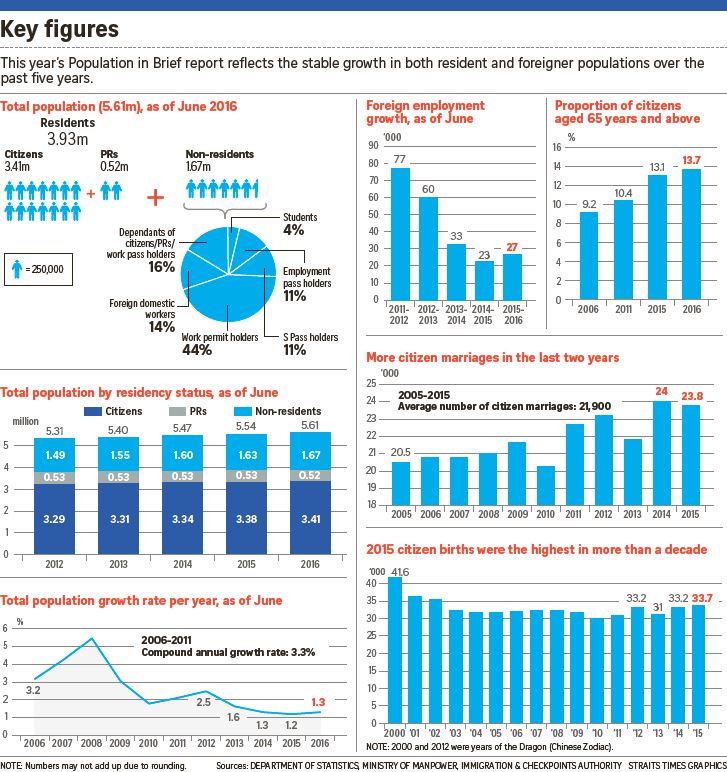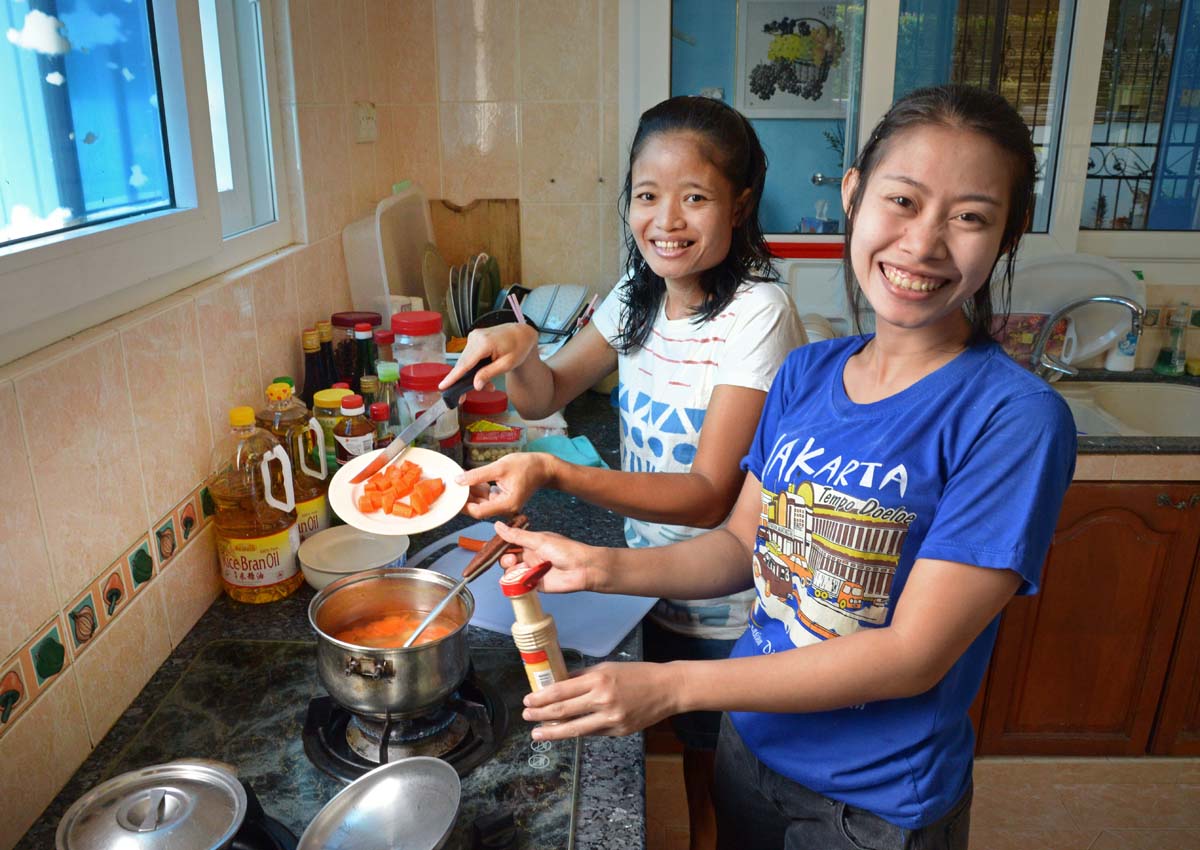Ms Carsih Carman Taja, 29, started working here two weeks ago to take care of her employer’s ailing 82-year-old father, a stroke patient.
“I look after Ah Gong, change his diapers and help him with his physio,” said the Indonesian of her duties, which she describes as difficult but rewarding.
She represents a growing number of non-residents in Singapore, which saw an increase in foreign domestic helpers as well as in dependants on long-term visit passes (LTVP), often citizens’ spouses.
From June last year to this June, the non-resident population registered its first uptick in growth in five years – it grew 2.5 per cent to 1.67 million, compared with 2.1 per cent the previous year, a report on the latest population statistics released yesterday showed.
The growth in foreign domestic workers, who form about 14 per cent of the non-resident population here, has been on the rise.
There were 237,100 such workers as of June, or 5,600 more than in December last year, Manpower Ministry figures show.
Data on the total number of LTVP holders is not publicly available, but 18,622 foreigners married to Singaporeans were granted long-term visit passes between October 2014 and December last year.
Yesterday’s Population in Brief 2016 report was released by the National Population and Talent Division in the Prime Minister’s Office.
It said the increase in foreign domestic worker population growth “reflects Singaporeans’ rising desire to augment their own care for their children and elderly”.
This squares with the experience of PhD student Ching S. Sia, 33, who hired Ms Carsih as a second maid after her father suffered a stroke earlier this year. “In between work and keeping house, my first helper, mother and I needed that extra help. We went for caregiving training and it has helped make taking care of my father easier,” she said.
National University of Singapore (NUS) sociologist Paulin Straughan is not surprised by the increase in the number of maids, given the ageing population and general reliance on them for caregiving help.
“The question is, is this sustainable? The ageing population is set to increase dramatically,” she said.
Fellow NUS sociologist Tan Ern Ser said the growth rate could decline if Singaporeans reduce their dependence on such workers.
This would involve seniors staying healthy for longer, families mobilising the community to take care of their elderly, or using technology and redesigning jobs to attract more locals to do caregiving jobs.
Dr Tan added that countries that provide the bulk of these workers may choose to reduce the number of citizens who can go overseas for such jobs in the future.
“Economic growth in these countries may also render going overseas as foreign domestic workers less attractive,” he added.
Yesterday’s figures also reported a slight rise in foreign employment growth as of June – 27,000 compared with 23,000 in June last year – but this “remained low compared with the earlier part of the decade”.
In comparison, the number of foreign hires grew by 77,000 from June 2011 to June 2012.

rachelay@sph.com.sg

This article was first published on September 28, 2016.
Get a copy of The Straits Times or go to straitstimes.com for more stories.






